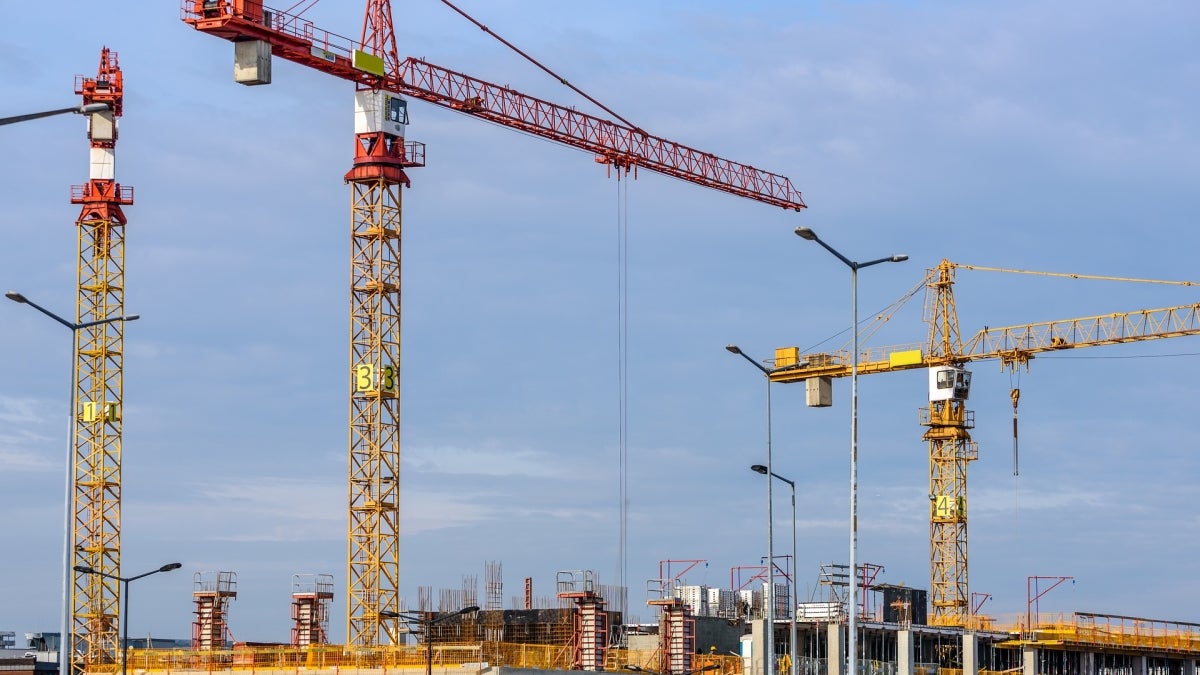President Donald Trump has backed off his threat to impose tariffs on Mexico over the immigration crisis, but he later said that China could face additional tariffs to the ones he imposed on goods including steel and aluminum from there last year. Two Arizona State University experts say that the ever-changing tariff situation is driving the one factor that businesses hate: uncertainty.
Tariffs are essentially taxes imposed on the American importer of a foreign product, according to Jenny Brown, an associate professor of accountancy in the W. P. Carey School of Business.
“I think sometimes people think the foreign government or the foreign company is going to pay the tariff. That’s not true,” she said.
The idea is to make the imported product costly and therefore give American suppliers an advantage.
“The idealistic notion is that these companies are going to turn to some U.S. supplier, but the fact of the matter is that manufacturers of these low-cost goods have long since left the U.S.,” she said.
“So it’s prohibitively costly to build a plant or reopen a plant in the U.S. to start manufacturing these component parts. That’s not really going to happen.”
Brown said it appears as though the threat of tariffs is being used by the administration as a bargaining chip.
“But the threat of them being imposed is enough to hurt businesses because they have to deal with this uncertainty,” she said.
That uncertainty is affecting all types of businesses and reaching the commercial real estate market in the Valley, according to Mark Stapp, director of the Center for Real Estate Theory and Practice and the Fred E. Taylor Professor in Real Estate in the W. P. Carey School of Business.
The real estate market was emerging from the recession with increased demand for labor and materials when the tariffs hit, creating problems.
Brown and Stapp answered some questions from ASU Now about the uncertainty sowed by tariffs and threats.
Question: How does the uncertainty around tariffs affect companies?
Jenny Brown: If you were manufacturing cars and you didn’t know how much the steel was going to cost, it’s hard to figure out how much product to produce and the price to set it at.

Jenny Brown
And then there’s the effect of the tariff itself, once it’s been imposed, which is the higher cost of goods.
How can I deal with that? I might try to change my supply chain. There’s a tariff on goods coming out of China so now I find somebody in Vietnam. Or I pay more to get the good from abroad and I increase the price I charge to the consumer.
Mark Stapp: It really began with the tariffs on softwood lumber. Just as the housing industry is starting to really recover, you throw these tariffs on the No. 1 building material used in housing construction — not just single family but multifamily too.
You have these tariffs on steel, aluminum and other products, including household appliances. When you’re building houses and apartments, you have stoves and refrigerators. Even the cabinets come from overseas sometimes. Commercial real estate uses steel framing.
Nearly the entire spectrum of the schedule of values, the cost associated with building, has been affected by the increase in demand and exacerbated by these tariffs in a substantial way.
Q: So would it be cheaper to lease commercial space rather than build?
Stapp: Those costs also have a big impact on the leasing market when an owner has to make improvements for a tenant, which costs more. For an owner to be able to amortize the higher cost of tenant improvements over a lease period, one of two things has to happen. You either extend the lease period or you increase the rental rates.
Now you create additional expense for businesses.
With office space in highly dynamic markets, you don’t want long leases because you can’t apply strategy to maximize the market.

Mark Stapp
Q: Do tariffs hurt small businesses more than big corporations?
Brown: Big businesses have ways they can survive the uncertainty. First, they have bigger cash flow and reserves, so if they think it will be short term, they can absorb additional coasts in their profit margins that they don’t have to pass on to the consumer. The small business does not have that slack.
Second, changing your supply chain requires bargaining power. If you have a longstanding relationship with a Chinese supplier, you can say, "I can get this from Vietnam or South America." If you’re small, you’ve been at the mercy of getting a reasonable cost and you can’t negotiate.
Bargaining power is a function of quantity and expertise. A bigger company will have a better legal team. A small guy may not have anyone on the ground in China, but a big guy can deploy a team. There are legal and transaction fees with changing your supply chain. If you’re small, it’s more costly to do that.
Big businesses can also spend money lobbying. If there are going to be tariffs, some industries will be better off.
Q: How else does uncertainty affect business?
Brown: Uncertainty will affect the stock market as well. When investors are pricing what they think the stock is worth, they’re thinking about the future cash flows of the firm. If there’s a bunch of uncertainty and that scares investors, they don’t like it. You see increased volatility in the market.
Stapp: Because of the uncertainty in pricing, general contractors will not bid jobs with estimates that last very long. It used to be you could bid a job and the bid would be good for 60 to 90 days. Today, it’s really hard to get somebody to commit for 30 days. That changes a lot of dynamics.
It makes it more uncertain for the investor, the borrower and the lender. You need larger contingencies. There are cases where the entire project gets put on the shelf. Developers want to lock things in.
Q: Tariffs were used a lot more a hundred years ago. What’s different today?
Brown: A hundred years ago, tariffs were used pretty extensively. There was a longtime tariff on sugar and the U.S. sugar industry really benefited from that because it was prohibitively costly to bring in sugar from outside the U.S. But at that time, everybody was using tariffs, the U.S. and our trade partners. It was the norm.
But we’ve been living a long time in an era of a push worldwide for free trade. We have lots of multilateral and bilateral trade agreements. And there have been efforts by the (World Trade Organization) to push back on any one country that goes rogue and tries to impose tariffs so we have the GATT, the general agreement on tariffs and trade. So we’re an outlier in the fact that this administration is coming up with these new tariffs.
Most economists think free trade is better and tariffs are terrible.
Q: If the administration changes in 2020 and tariffs are no longer an issue, could the repercussions become permanent?
Brown: They could be and that is where the small firms can really get hurt. The small firms can’t wait. They may be driven out of the industry. The large firms will be left with a greater market share. You could see a decrease in competition. Even if things get reversed in 2020, the barriers for reentry will be too high.
They may not think it’s worth it to shift the supply chain once again.
Stapp: We talk about elasticity in the market — how far we can stretch prices before they no longer are acceptable. The problem is the only way that prices will go down now is if there’s a recession. If there’s not a recession, we’ve created the new baseline.
That’s unless you can decrease demand, where suppliers have no choice but to lower prices, and I don’t see that happening.
Top image by Pixabay
More Law, journalism and politics

ASU's Carnegie-Knight News21 project examines the state of American democracy
In the latest project of Carnegie-Knight News21, a national reporting initiative and fellowship headquartered at Arizona State University’s Walter Cronkite School of Journalism and Mass Communication…

Arizona secretary of state encourages students to vote
Arizona Secretary of State Adrian Fontes looked right and left, taking in the more than 100 students who gathered to hear him speak in room 103 of Wilson Hall.He then told the students in the Intro…

Peace advocate Bernice A. King to speak at ASU in October
Bernice A. King is committed to creating a more peaceful, just and humane world through nonviolent social change.“We cannot afford as normal the presence of injustice, inhumanity and violence,…
